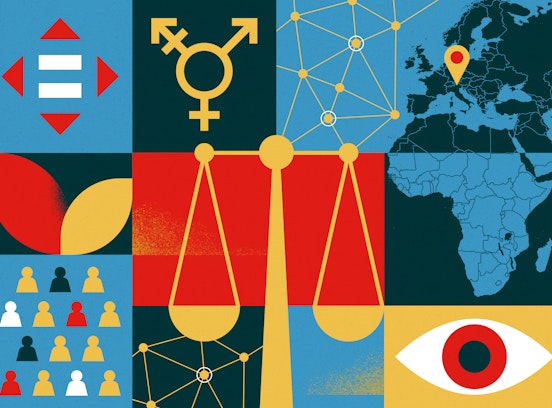Center for Advanced Studies - Transformation and Sustainability - News & Events - Sexten Fireside Talks: Tourism industry must take social responsibility
Sexten Fireside Talks: Tourism industry must take social responsibility
Eurac Research, Sexten Kultur, and the Sexten Tourist Association bring affordable housing and the social responsibility of tourism to the forefront of the Sexten Fireside Talks
High real estate prices, rising rents, and limited opportunities to realize the dream of home ownership pose significant challenges for the people of South Tyrol. In the public discourse about the housing shortage, the role of tourism is also under scrutiny. This was evident at this year's Sexten Fireside Talks on October 2nd at the House Sexten, where experts from the tourism industry, architecture, and academia, along with an engaged audience, explored potential solutions.
Living where others go on vacation: A once promising slogan has now almost turned into a curse. Because living, and above all, residing in South Tyrol, is no longer as pleasant. The issue of housing has long become one of the most pressing social concerns, and the tourism industry must also confront its social responsibility, according to the consensus at the seventh Sexten Fireside Talks. This is a problem that South Tyrol shares with other tourism regions. Parallels can be drawn, for example, to Garmisch-Partenkirchen, as outlined by Christian Steiner, Professor of Human Geography at the Catholic University of Eichstätt-Ingolstadt. The societal promise of advancement through work and education is no longer valid. The local population is being displaced from the local real estate market, and even young people from established families are forced to look elsewhere for housing. "Especially vacation rentals become a problem," emphasized Steiner. While they existed earlier as well, what has changed is the professionalization and digitization of vacation rental agencies. "Complete packages are offered to vacation rental owners, so they are completely detached from the tourism process. At the same time, the quality in the market has increased significantly, which is lucrative for foreign investors who fundamentally have little knowledge of the places themselves. In the end, it is about more than the loss of living space or future opportunities. Investors and second-home owners are not active in local fire departments, sports clubs, social associations, or cultural institutions. However, for truly sustainable regional development, one must also contribute to the common good.
Image Gallery
Tourism can still be an 'Agent of Change'
It takes imagination for the unthinkable, for alternative developments, and even radical changes," emphasized Andreas Flora. He is a freelance architect and teaches at the Institute of Design at the University of Innsbruck. In the 19th century, tourism turned even the most remote mountain valleys upside down, and presently, it still has the potential to be an 'Agent of Change.' "The most valuable asset of tourism is the pristine natural landscape, and this makes me optimistic that the industry will also advocate for its protection. However, protection should not be limited to mountain regions alone. Lowland landscapes are equally important for ecology." Therefore, unconventional thinking is required, such as considering new settlement archipelagos in areas already intensively used, like ski slopes, car-free mobility solutions through cable cars, multi-generational houses, or vertical cities.
Ivan Bocchio, from the Institute of Technology and Architecture at ETH Zurich, followed a similar line of argument. "Everyone thinks about their own house, their own apartment, their own hotel, their own room. But our homes are only as beautiful as the streets, squares, and meadows we look out onto!" We must move away from thinking in terms of volume and move towards a shared overall picture.
Social development is just as important
Development can only occur in harmony with the population," knows Daria Habicher, project manager of the PNRR project for the municipality of Stilfs, aimed at upgrading and revitalizing the village in Vinschgau, which is particularly affected by emigration. Despite all the ongoing developments, social development is lagging behind. If tourism wants to be a force for change, the industry must also allow for new models of work and organization, and also grapple with what it means when young representatives of the industry think of contraction instead of expansion. In contrast, in Bad Gastein, hundreds of new beds are currently being created. Evelyn Ikrath found clear and critical words for this: "What is not being created are living spaces, mobility solutions, and childcare for the people who live and work in the destination - not just in times of skilled labor shortages, this is a negligent omission. Investors are not the solution, and we cannot always wait for politics. Tourism must initiate thought processes itself." Lukas Krösslhuber, Managing Director of the Wilder Kaiser Tourism Association, agreed with this. As a tourism association, they had voluntarily decided not to allow any additional beds and instead to better utilize existing capacities and to provide advisory support to the industry in terms of realignment. They also sought to identify and prevent illegal second homes through control committees.
The tourism industry must become more proactive, emphasized Harald Pechlaner, Director of the Center for Advanced Studies at Eurac Research and Professor of Tourism at the Catholic University of Eichstätt-Ingolstadt. Especially in South Tyrol, one sees touristically advanced places that lag far behind in many other areas of development. Clear visions are needed at the local level for who should live in the valleys, villages, and cities in the future and how these places should look.
The Sexten Fireside Talks were organized by the Center for Advanced Studies at Eurac Research, the Sexten Tourism Association and Sexten Kultur. The greetings at the "Sextner Kamingespräche - Sesto fireside talks" were delivered by Christoph Rainer, President of the Sesto Culture Association.
Keynote presentations
Past events
2022 | Sextner Kamingespräche: "From destination to living space - participation as the royal road?"
FIND OUT MORE2020 | Lecture evening as part of the GMS Forum: "Respect for the valuable ecological area of the mountains"
FIND OUT MORE










